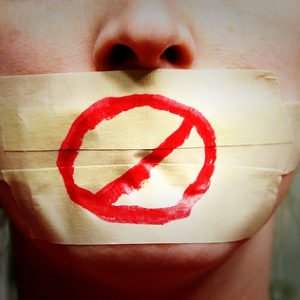Social media censoring of the New York Post, the Trump campaign and people sharing the Hunter Biden corruption story, is partly a flex of Twitter’s and Facebook’s near monopoly power over information — but only partly.
A decade of government demands that social media censor content posted by Islamic radicals has empowered these companies.
The Obama administration pressured social media companies to take down ISIS content. European Union laws penalize them if they didn’t take down such posts within an hour.
You cannot make social media responsible for content and then excoriate them using their power to censor. Censors claim they are protecting the to ensure people feel safe and to reduce the spread of false news.
The political bias behind these lofty sounding ideals aims to shut up the opposition. Beyond trampling on constitutional rights, it makes no strategic sense. You can shut up some of the people some of the time, but you can’t shut up all of the people all of the time. And you shouldn’t try.
I am a marketing expert who studied insurgent communications for Weaponized Marketing: Defeating Islamic Jihad with Marketing That Built the World’s Top Brands. Here’s why censorship is a bad strategy:
1. Censorship does not work. People find ways to get around censors. Islamic jihadists use “swarmcasting” to spread content faster and farther it can be deleted. Using bots and AI across resilient networks, they overwhelm shutdown efforts. Think netwar on steroids.
2. “Shut up” is a loser’s argument that destroys credibility. When all you can say is “shut up,” you are saying you don’t trust the persuasiveness of your argument. You bring more attention to their message than if you had just ignored it.
3. When people can’t use their words, they turn to violence. A war of words, even the most “harmful” words, are preferable to stabbings, beheadings, and riots.
4. Listening disarms. In marketing, the customer is always right. When you give the angry person a chance to vent, they lose emotional steam so you can solve the problem. If you tell someone to shut up, you make them angrier and de-escalation impossible.
5. Speech is creative. Debate and discussion require thinking, answering challenges, proving points, developing alternatives. The new thinking that results can open opportunities and change the course of events.
6. Shutting your ears actually shuts your eyes. When you can’t hear the other side, you can’t see how to defeat them. Shutting down communication just forces conversations underground. An Army Special Forces counter-terror specialist told me: “The value of learning the TTP (techniques, tactics and procedures) of the enemy is worth more than the damage caused by a few tweets.”
7. Censorship silences the good with the bad. You risk shutting down those working for positive change when you censor “bad” people. Facebook almost derailed efforts to oust Egypt’s Hosni Mubarak when it suspended protester accounts. In China, the most popular business collaboration apps, online meeting platforms, and email, voice and messaging channels are disabled. Chinese censors harm Chinese businesses and their own economy.
8. Then there is the Bill of Rights. The First Amendment right to freedom of speech is the core tenet of the American law and is central to true freedom. It is threatened by social media censorship. Thankfully, people are fighting back.
Social media censors claim they are protecting people, but what we need is protection from their censorship. If an idea is really so dangerous, isn’t it better to defeat it than to hide it?
Don’t shut people up. Win the argument.

